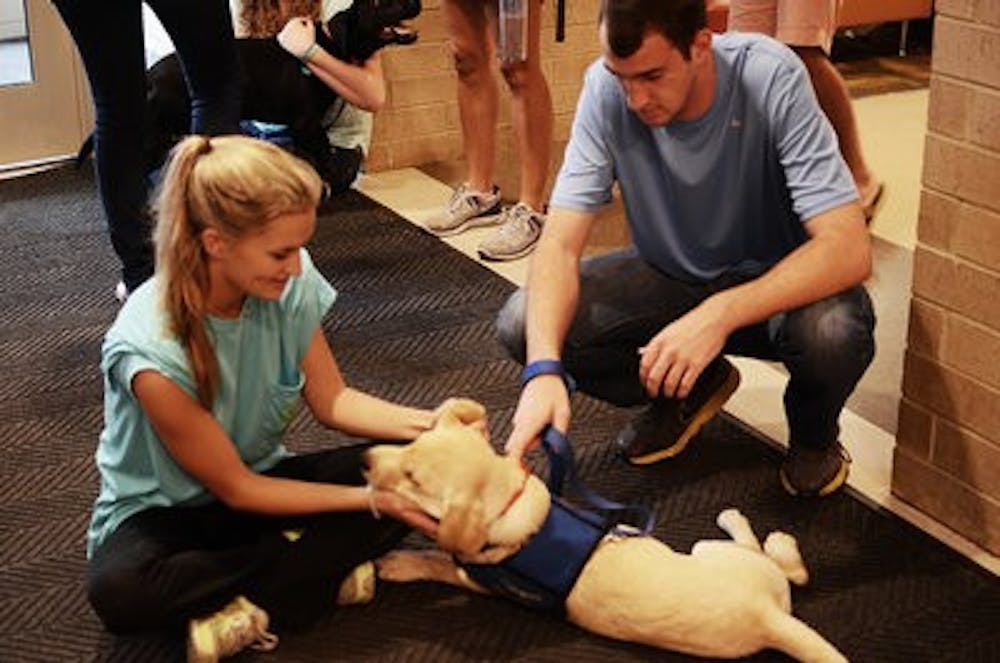The Auburn University College of Veterinary Medicine's Animal and Health Performance program has been renamed Canine Performance Sciences (CPS).
James Floyd, interim director of the program, said the new name better reflects the program's mission.
"The short version is that it is just doing a better job of describing what we do," Floyd said. "We have really concentrated on mostly detection dogs and performance. They have to be able to perform."
According to the program's website, CPS is a national leader on working animals.
Exercise can have benefits on animals' general health and their physical, physiological and psychological needs.
"The Auburn University College of Veterinary Medicine has invested years of research in developing a strong and versatile detection program in the fight against terrorism," said Calvin Johnson, dean of the College of Veterinary Medicine, in a statement to the Universtity. "This new name reflects that work."
Right now, the program has four breeding females and averages 60 puppies a year. Floyd says their goal is for more.
"We are trying to grow the number of puppies from 60 per year to up to 200," Floyd said.
The program's research is funded by various agencies and depends on what kind of grants they receive.
"A lot of it is federal government," Floyd said. "Some of it comes from private donors."
The detection of bombs has been a focus of the program, especially since 9/11.
"A dog's nose is an excellent detection device," Floyd said. "If a dog can smell it, they can be trained to let us know they can smell it."
Terry Fischer, Auburn University's chief canine instructor, spoke about the process of finding and training a dog.
"First, you have to have a good foundation," Fischer said. "The selection process is a major component. You have to have a very focused dog."
Fischer said evaluating the dog is also a major part of knowing whether the dog will be trainable.
"You have to evaluate him on his reward," Fischer said. "What is he going to work for? When you find a dog that is environmentally sound, he can go into any environment and not be bothered whatsoever. He will do anything for that reward."
According to Fischer, imprinting, or programming, the dog comes next.
"Everyone has their own ways of imprinting a dog," Fischer said. "You have to be very concise and clear what you want the dog to learn. Dogs are very clever."
CPS has a reputation for groundbreaking research efforts in detection and understanding animal performance.
The program has a patent-pending technology named VAPOR WAKE(R).
According to its website, VAPOR WAKE(R) is a technology that trains dogs to detect explosives.
VAPOR WAKE(R) is licensed through the Auburn Research Technology Foundation for delivery by AMK9 Academy to expand its employment in defense of the nation and society.
Do you like this story? The Plainsman doesn't accept money from tuition or student fees, and we don't charge a subscription fee. But you can donate to support The Plainsman.





